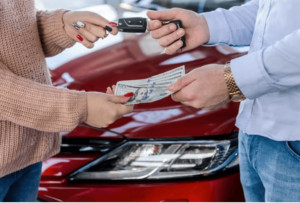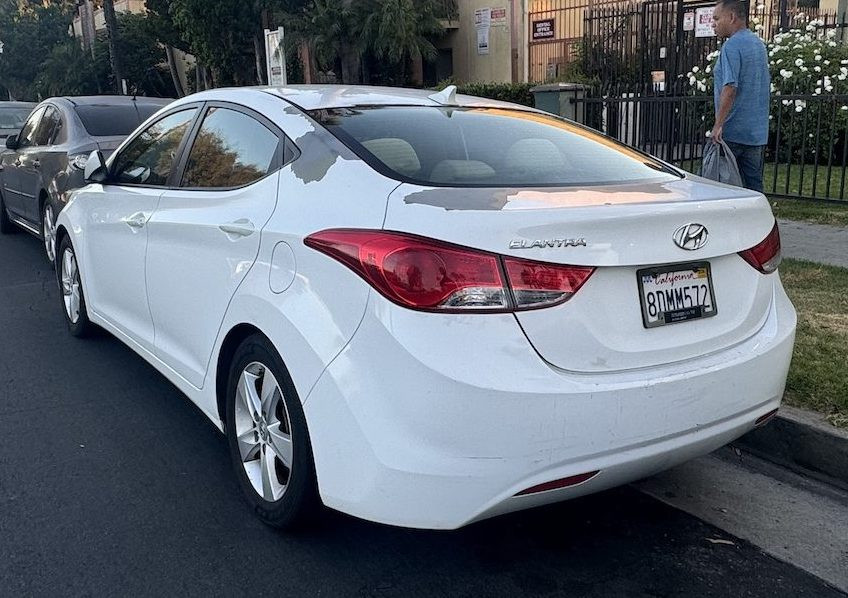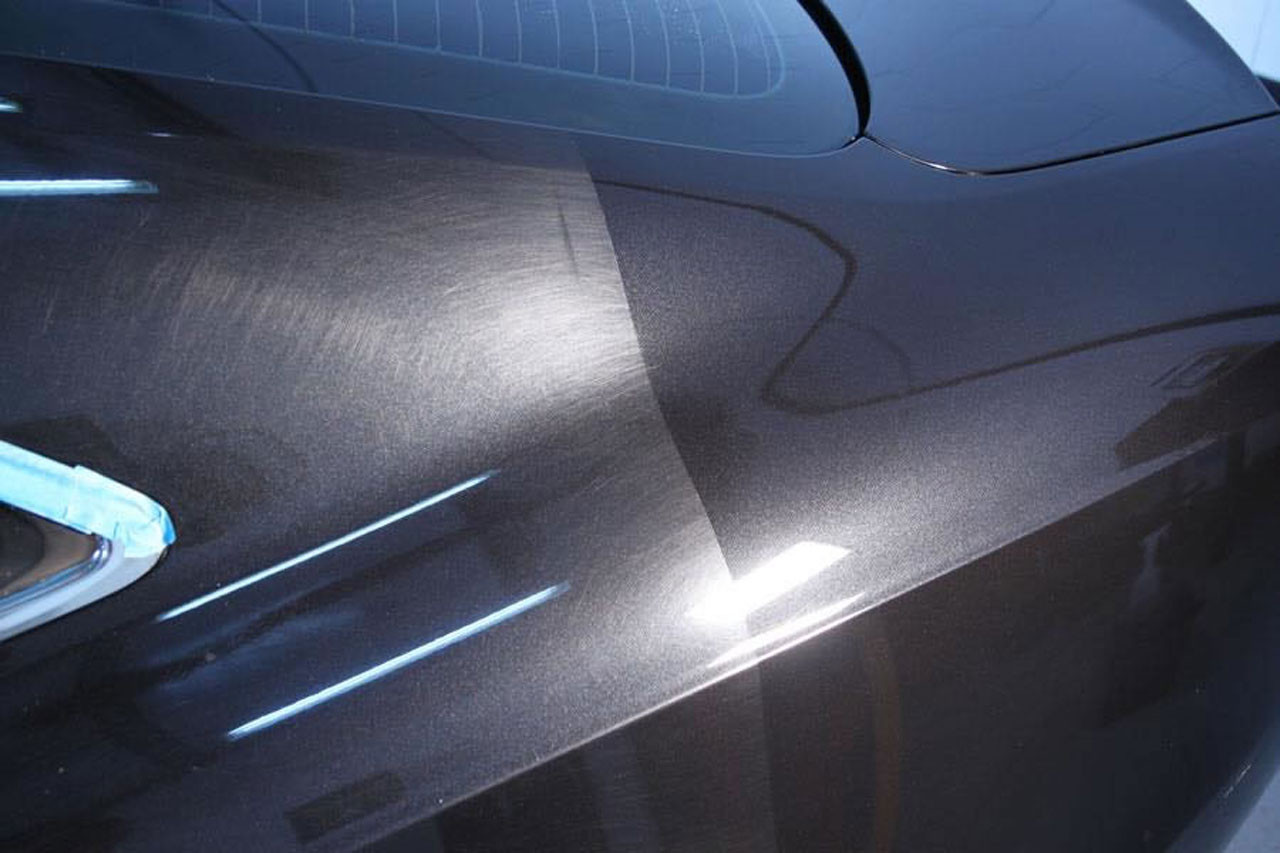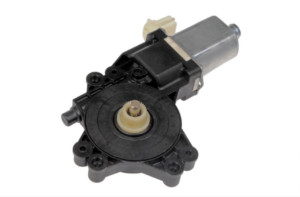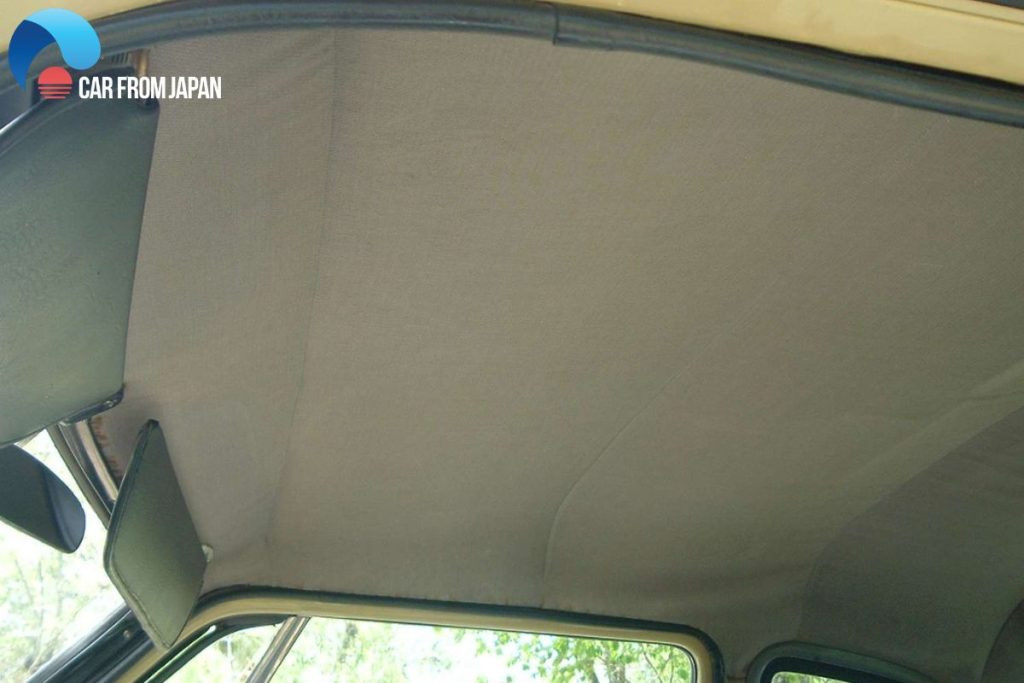Where Can I Get My Car Fixed Near Me: Your Guide
Finding reliable auto repair services doesn’t have to be a daunting task. Where can I get my car fixed near me is a common question, and CARDIAGTECH.NET is here to provide answers and solutions, ensuring you get back on the road with confidence. We’ll explore how to locate the best local auto shops, understand repair costs, and make informed decisions, offering guidance and connecting you with the tools to empower your repair choices.
1. Understanding Your Auto Repair Needs
Before searching where can I get my car fixed near me, assess your specific needs. Consider the type of repair, your vehicle’s make and model, and any specific requirements you might have.
1.1. Identifying the Problem
- Dashboard Warning Lights: Diagnose what those lights mean. Is it a minor issue or something more serious?
- Unusual Noises: Note when and where you hear strange sounds. This information helps mechanics pinpoint the problem quickly.
- Performance Issues: Describe any changes in how your car drives, such as rough idling, stalling, or decreased fuel efficiency.
- Fluid Leaks: Check for puddles under your car and identify the color of the fluid (oil, coolant, brake fluid, etc.).
1.2. Type of Repair
- Routine Maintenance: Oil changes, tire rotations, and brake inspections.
- Mechanical Repairs: Engine repairs, transmission work, and suspension fixes.
- Electrical Repairs: Battery replacements, wiring issues, and sensor malfunctions.
- Body Work: Collision repairs, dent removals, and paint jobs.
1.3. Vehicle Make and Model
Different vehicles have different repair needs. Knowing your car’s make and model helps you find specialized shops. For example:
- European Cars: Shops specializing in brands like BMW, Mercedes-Benz, and Audi.
- Japanese Cars: Mechanics familiar with Toyota, Honda, and Nissan vehicles.
- American Cars: Technicians experienced with Ford, Chevrolet, and Chrysler models.
2. Finding Local Auto Repair Shops
When typing where can I get my car fixed near me, several resources can help you discover reputable local options.
2.1. Online Search Engines
- Google: Use Google Maps and search terms like “auto repair near me,” “best mechanic near me,” or “car service [your city]”.
- Bing: Similar to Google, Bing provides local search results, maps, and reviews.
- DuckDuckGo: A privacy-focused search engine that also delivers local results.
2.2. Online Directories
- Yelp: Find local businesses with customer reviews and ratings.
- Yellow Pages: A traditional directory with online listings for auto repair shops.
- Angie’s List/HomeAdvisor: Provides reviews and ratings for service providers, including auto mechanics.
2.3. Manufacturer Websites
- Dealerships: Official dealerships often have service centers for specific car brands.
- Certified Repair Networks: Some manufacturers have certified repair networks that meet their standards.
2.4. Recommendations
- Friends and Family: Ask for recommendations from people you trust.
- Online Forums: Check automotive forums for local shop suggestions.
- Local Community Groups: Engage with community groups on social media for recommendations.
3. Evaluating Auto Repair Shops
Once you’ve compiled a list, evaluate each shop to ensure they meet your standards.
3.1. Check Reviews and Ratings
- Yelp, Google Reviews, and More: Look for consistent positive feedback. Pay attention to the details in the reviews.
- BBB (Better Business Bureau): Check the shop’s rating and any complaints filed against them.
3.2. Verify Certifications
- ASE (Automotive Service Excellence): Look for ASE-certified technicians, which indicates they have passed rigorous testing and meet industry standards.
- Manufacturer Certifications: Some mechanics hold certifications from specific car manufacturers.
3.3. Inspect the Shop
- Cleanliness: A well-organized, clean shop often indicates professionalism.
- Equipment: Modern diagnostic and repair equipment suggests the shop is up-to-date with current technology.
- Customer Service: Friendly, helpful staff can make the repair process smoother.
3.4. Ask About Warranties
- Parts and Labor: Inquire about warranties on parts and labor. A good shop stands behind its work.
- Warranty Terms: Understand the terms of the warranty, including what it covers and how long it lasts.
4. Getting an Estimate
Before committing to a repair, get a detailed estimate. This helps you understand the costs involved and avoid surprises.
4.1. Request a Written Estimate
- Detailed Breakdown: The estimate should include a breakdown of parts, labor, and any additional fees.
- Clarity: Ensure the estimate is clear and easy to understand. Ask for clarification if needed.
4.2. Compare Estimates
- Multiple Shops: Get estimates from several shops to compare prices and services.
- Beware of Low Estimates: Extremely low estimates might indicate substandard parts or inexperienced technicians.
4.3. Understand Labor Rates
- Hourly Rate: Ask about the shop’s hourly labor rate.
- Estimated Time: Inquire how long the repair is expected to take.
4.4. Inquire About Additional Costs
- Diagnostic Fees: Ask if there’s a diagnostic fee and whether it will be applied to the repair cost.
- Unexpected Issues: Discuss how the shop handles unexpected problems that arise during the repair.
5. Making Informed Decisions
Choosing the right auto repair shop involves weighing several factors and making informed decisions.
5.1. Trust Your Gut
- Comfort Level: Choose a shop where you feel comfortable and confident in their abilities.
- Communication: Good communication is essential. The shop should be willing to explain the repair process and answer your questions.
5.2. Consider Long-Term Value
- Quality of Work: Focus on the quality of the repair, not just the price. A well-done repair can save you money in the long run.
- Preventive Maintenance: Ask about preventive maintenance to keep your car running smoothly and avoid future problems.
5.3. Review the Repair Order
- Accuracy: Ensure the repair order accurately reflects the work discussed and agreed upon.
- Authorization: Do not authorize any work until you fully understand and approve the repair order.
5.4. Stay Informed
- Progress Updates: Ask for regular updates on the repair progress.
- Changes: If the shop discovers additional issues, they should contact you for approval before proceeding.
6. Common Auto Repairs and Their Costs
Understanding typical repair costs can help you budget and assess estimates.
6.1. Oil Change
- Cost: $30 – $75
- Frequency: Every 3,000 – 7,500 miles (check your vehicle’s manual)
6.2. Brake Repair
- Cost: $150 – $400 per axle
- Includes: Replacing brake pads or shoes, resurfacing rotors or drums, and checking brake lines.
6.3. Tire Rotation
- Cost: $25 – $50
- Frequency: Every 6,000 – 8,000 miles
6.4. Battery Replacement
- Cost: $100 – $300
- Lifespan: 3 – 5 years
6.5. Engine Repair
- Cost: Varies widely, from $500 to $5,000+
- Depends on: The severity of the damage and the parts needed.
6.6. Transmission Repair
- Cost: $500 – $3,000+
- Complexity: Transmissions are complex, so repairs can be expensive.
7. Using CARDIAGTECH.NET for Your Auto Repair Needs
CARDIAGTECH.NET provides valuable tools and resources to help you handle auto repairs efficiently.
7.1. Diagnostic Tools
- OBD2 Scanners: Essential for reading and clearing diagnostic trouble codes.
- Multimeters: Used for testing electrical circuits and components.
- Specialty Tools: Tools for specific tasks like brake jobs, engine work, and more.
7.2. High-Quality Equipment
- Durability: Our tools are built to last, even under heavy use.
- Accuracy: Precise measurements and readings for accurate diagnostics.
- Reliability: Dependable performance to get the job done right.
7.3. Boosting Efficiency
- Faster Repairs: The right tools speed up the repair process.
- Reduced Errors: Accurate diagnostics minimize mistakes.
- Increased Productivity: Get more done in less time.
7.4. Enhancing Safety
- Proper Tools: Using the correct tools reduces the risk of injury.
- Secure Repairs: Ensure components are correctly installed and tightened.
- Preventing Damage: Avoid causing further damage to the vehicle.
7.5. Reducing Costs
- Accurate Diagnostics: Identify the problem quickly to avoid unnecessary repairs.
- Preventive Maintenance: Catch issues early to prevent costly damage.
- DIY Repairs: Handle simple repairs yourself to save on labor costs.
7.6. CARDIAGTECH.NET Advantages
- Wide Selection: We offer a comprehensive range of tools for all types of auto repairs.
- Competitive Pricing: Get high-quality tools at affordable prices.
- Expert Advice: Our team can help you choose the right tools for your needs.
8. DIY vs. Professional Repair
Deciding whether to tackle a repair yourself or hire a professional depends on your skills and the complexity of the job.
8.1. Simple Repairs (DIY)
- Oil Changes: Relatively easy with the right tools and knowledge.
- Battery Replacement: Straightforward, but handle batteries with care.
- Wiper Blade Replacement: Simple and quick.
- Air Filter Replacement: Easy and helps improve engine performance.
8.2. Intermediate Repairs (Consider Professional)
- Brake Pad Replacement: Requires some mechanical knowledge and proper tools.
- Spark Plug Replacement: Can be done at home, but requires care to avoid damaging the engine.
- Coolant Flush: Requires proper disposal of used coolant.
8.3. Complex Repairs (Professional Recommended)
- Engine Repairs: Complex and requires specialized knowledge and tools.
- Transmission Repairs: Highly complex and best left to professionals.
- Electrical System Repairs: Requires advanced diagnostic skills.
8.4. Assessing Your Skills
- Honesty: Be honest about your abilities. Don’t attempt repairs beyond your skill level.
- Research: Watch videos, read guides, and learn as much as possible before starting a repair.
- Safety: Always prioritize safety. Use proper tools and follow safety guidelines.
9. Maintaining Your Vehicle to Avoid Repairs
Preventive maintenance is key to avoiding costly repairs and keeping your car running smoothly.
9.1. Regular Oil Changes
- Importance: Keeps the engine lubricated and prevents wear.
- Frequency: Follow your vehicle’s manual or use synthetic oil for extended intervals.
9.2. Tire Maintenance
- Inflation: Maintain proper tire pressure for even wear and better fuel efficiency.
- Rotation: Rotate tires every 6,000 – 8,000 miles to ensure even wear.
- Alignment: Check wheel alignment to prevent uneven tire wear.
9.3. Brake Inspections
- Regular Checks: Inspect brake pads, rotors, and lines regularly.
- Early Replacement: Replace worn brake components promptly.
9.4. Fluid Checks
- Coolant: Maintain proper coolant levels to prevent overheating.
- Brake Fluid: Check brake fluid levels and condition.
- Transmission Fluid: Inspect transmission fluid for leaks and proper levels.
- Power Steering Fluid: Check power steering fluid levels and condition.
9.5. Belt and Hose Inspections
- Cracks and Wear: Check belts and hoses for cracks, wear, and leaks.
- Timely Replacement: Replace worn belts and hoses to prevent breakdowns.
9.6. Battery Maintenance
- Clean Terminals: Keep battery terminals clean to ensure good connections.
- Regular Testing: Test the battery regularly, especially in extreme temperatures.
9.7. Air Filter Replacement
- Clean Air: Replace the air filter to ensure clean air flow to the engine.
- Improved Performance: A clean air filter improves fuel efficiency and engine performance.
9.8. Schedule Regular Check-Ups
- Professional Inspections: Have your car inspected by a mechanic regularly.
- Early Detection: Catch potential problems early to prevent major repairs.
10. Dealing with Insurance Companies
If your car repairs are due to an accident, dealing with insurance companies can be stressful. Here’s how to navigate the process.
10.1. Report the Accident
- Prompt Reporting: Report the accident to your insurance company as soon as possible.
- Detailed Information: Provide accurate details about the accident.
10.2. Get an Estimate
- Multiple Estimates: Get estimates from several repair shops.
- Insurance Approval: Ensure the insurance company approves the estimate before starting repairs.
10.3. Understand Your Policy
- Coverage: Know what your policy covers, including deductibles and rental car reimbursement.
- Policy Limits: Be aware of the policy limits for property damage.
10.4. Negotiate with the Insurer
- Fair Settlement: Negotiate for a fair settlement that covers all necessary repairs.
- Documentation: Keep detailed records of all communications and expenses.
10.5. Consider Arbitration
- Disputes: If you disagree with the insurance company’s offer, consider arbitration or mediation.
- Legal Advice: Consult with an attorney if necessary.
11. Staying Safe During Auto Repairs
Safety should always be a priority, whether you’re doing DIY repairs or working with a professional.
11.1. Use Proper Tools
- Right Tool for the Job: Use the correct tools for each task.
- Quality Tools: Invest in high-quality tools that are safe and reliable.
11.2. Wear Safety Gear
- Safety Glasses: Protect your eyes from debris and chemicals.
- Gloves: Protect your hands from cuts, burns, and chemicals.
- Respirator: Use a respirator when working with paints or chemicals.
11.3. Work in a Safe Environment
- Well-Ventilated Area: Work in a well-ventilated area, especially when using chemicals.
- Proper Lighting: Ensure adequate lighting to see what you’re doing.
- Clear Workspace: Keep your workspace clean and free of clutter.
11.4. Follow Safety Procedures
- Disconnect Battery: Disconnect the battery before working on electrical components.
- Use Jack Stands: Always use jack stands when working under a vehicle.
- Proper Lifting Techniques: Use proper lifting techniques to avoid back injuries.
11.5. Store Chemicals Safely
- Labeled Containers: Store chemicals in labeled containers.
- Secure Storage: Keep chemicals in a secure location away from children and pets.
12. Government Resources and Regulations
Understanding relevant regulations and resources can help you protect your rights as a consumer.
12.1. State Consumer Protection Agencies
- Consumer Rights: State agencies protect consumers from unfair business practices.
- Filing Complaints: File a complaint with the state agency if you believe you’ve been treated unfairly.
12.2. Federal Trade Commission (FTC)
- Consumer Protection Laws: The FTC enforces consumer protection laws and regulations.
- Reporting Fraud: Report fraud and scams to the FTC.
12.3. National Highway Traffic Safety Administration (NHTSA)
- Vehicle Safety Standards: NHTSA sets vehicle safety standards and regulations.
- Recalls: Stay informed about vehicle recalls and safety issues.
12.4. State Department of Motor Vehicles (DMV)
- Vehicle Inspections: State DMVs often require vehicle inspections to ensure safety and emissions compliance.
- Repair Shop Licensing: Check if repair shops are licensed and regulated by the state.
13. Addressing Customer Challenges with CARDIAGTECH.NET
CARDIAGTECH.NET is dedicated to helping mechanics overcome common challenges and improve their services.
13.1. Physical Demands
- Ergonomic Tools: We offer ergonomic tools designed to reduce strain and fatigue.
- Lifting Equipment: Our lifting equipment makes heavy lifting easier and safer.
13.2. Exposure to Chemicals
- Protective Gear: We provide high-quality protective gear to minimize chemical exposure.
- Tool Maintenance: Proper tool maintenance reduces the risk of chemical leaks and spills.
13.3. Keeping Up with Technology
- Diagnostic Tools: Our advanced diagnostic tools keep you up-to-date with the latest technology.
- Training Resources: We offer resources to help you learn how to use new tools and techniques.
13.4. Time and Scheduling Pressure
- Efficient Tools: Our tools help you work faster and more efficiently.
- Diagnostic Accuracy: Accurate diagnostics reduce the time spent troubleshooting.
13.5. Competition
- Quality Tools: High-quality tools improve the quality of your work and attract more customers.
- Customer Satisfaction: Satisfied customers are more likely to recommend your shop.
14. Future Trends in Auto Repair
Staying informed about future trends can help you prepare for changes in the industry.
14.1. Electric Vehicles (EVs)
- EV Training: Mechanics need specialized training to work on EVs.
- Specialized Tools: EVs require specialized tools and equipment.
14.2. Advanced Driver-Assistance Systems (ADAS)
- ADAS Calibration: ADAS systems require calibration after repairs.
- Diagnostic Equipment: Advanced diagnostic equipment is needed to troubleshoot ADAS issues.
14.3. Connected Cars
- Data Security: Mechanics need to be aware of data security issues related to connected cars.
- Remote Diagnostics: Remote diagnostics will become more common.
14.4. 3D Printing
- Parts Manufacturing: 3D printing may be used to manufacture custom or rare parts.
- Tool Customization: Mechanics can use 3D printing to customize tools and equipment.
14.5. Artificial Intelligence (AI)
- Diagnostic Assistance: AI can assist with diagnostics and troubleshooting.
- Predictive Maintenance: AI can predict when parts will need to be replaced.
15. CARDIAGTECH.NET: Your Partner in Auto Repair Success
CARDIAGTECH.NET is committed to providing high-quality tools, resources, and support to help you succeed in the auto repair industry.
15.1. Comprehensive Tool Selection
- All Your Needs: We offer a wide range of tools to meet all your repair needs.
- New Products: We are constantly adding new products to our catalog.
15.2. Expert Support
- Knowledgeable Staff: Our staff is knowledgeable and ready to assist you.
- Technical Assistance: We provide technical assistance and troubleshooting support.
15.3. Competitive Pricing
- Affordable Tools: We offer competitive pricing on all our tools.
- Discounts and Promotions: Take advantage of our discounts and promotions.
15.4. Fast Shipping
- Quick Delivery: We offer fast shipping to get you the tools you need quickly.
- Tracking Information: Track your order and know when to expect delivery.
15.5. Customer Satisfaction
- Satisfaction Guarantee: We stand behind our products with a satisfaction guarantee.
- Easy Returns: If you’re not satisfied, we offer easy returns and exchanges.
15.6. Contact Us Today
Ready to elevate your auto repair capabilities? Contact CARDIAGTECH.NET today for expert advice and top-quality tools.
- Address: 276 Reock St, City of Orange, NJ 07050, United States
- WhatsApp: +1 (641) 206-8880
- Website: CARDIAGTECH.NET
16. Frequently Asked Questions (FAQs)
1. How do I find a reliable auto repair shop near me?
Use online search engines like Google, Yelp, and Angie’s List. Check reviews, verify certifications (like ASE), and inspect the shop’s cleanliness and equipment.
2. What should I look for in an auto repair estimate?
A detailed breakdown of parts, labor, and fees. Compare estimates from multiple shops and understand the labor rates and warranty terms.
3. What are common auto repairs and their typical costs?
Oil changes ($30-$75), brake repairs ($150-$400 per axle), tire rotations ($25-$50), battery replacements ($100-$300), and engine/transmission repairs (highly variable).
4. Should I attempt DIY repairs or hire a professional mechanic?
Simple repairs like oil changes and wiper blade replacements can be DIY. Complex repairs like engine and transmission work are best left to professionals. Assess your skills honestly and prioritize safety.
5. How can I maintain my vehicle to avoid costly repairs?
Regular oil changes, tire maintenance, brake inspections, fluid checks, and belt/hose inspections. Schedule regular check-ups with a mechanic.
6. What should I do if my car repairs are due to an accident?
Report the accident to your insurance company, get multiple repair estimates, understand your policy coverage, and negotiate with the insurer for a fair settlement.
7. What safety precautions should I take during auto repairs?
Use proper tools, wear safety glasses and gloves, work in a well-ventilated area, disconnect the battery before electrical work, and use jack stands when working under a vehicle.
8. How can CARDIAGTECH.NET help me with my auto repair needs?
CARDIAGTECH.NET offers diagnostic tools, high-quality equipment, and expert advice to enhance efficiency, safety, and cost savings in your auto repairs.
9. What are some future trends in the auto repair industry?
Electric vehicles (EVs), Advanced Driver-Assistance Systems (ADAS), connected cars, 3D printing, and artificial intelligence (AI).
10. How can I contact CARDIAGTECH.NET for support and tools?
Visit our website at CARDIAGTECH.NET, call us at +1 (641) 206-8880, or visit our address at 276 Reock St, City of Orange, NJ 07050, United States.
17. Final Thoughts
When searching where can I get my car fixed near me, remember to prioritize research, ask questions, and trust your instincts. With the right tools and information, you can ensure your vehicle receives the best possible care. Let CARDIAGTECH.NET be your partner in achieving auto repair success, providing the tools and support you need every step of the way.



